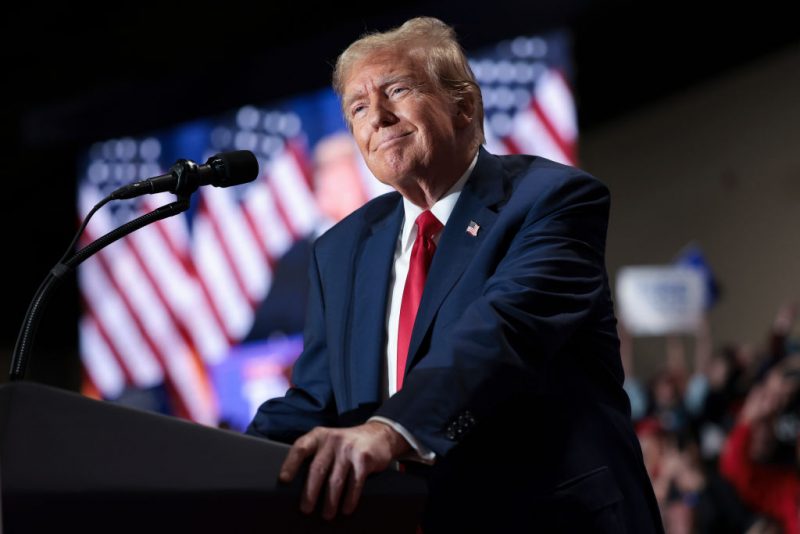The Mexican government is already feeling the strain of President-elect Donald Trump’s threats to impose significant tariffs, with a major auto manufacturer reconsidering its investment strategy in the country.
Mazda Motor Corporation, a leading international auto manufacturer based in Japan, has confirmed it is reevaluating its investments in Mexico. According to Bloomberg, the company is awaiting clarification from the incoming Trump administration on its proposed 25% tariffs on all Mexican goods. Trump, who has promised to take a hardline stance on illegal immigration, has threatened to levy tariffs on both Mexico and Canada unless they take stronger actions to curb illegal migration and drug trafficking into the U.S.
“We want to continue investing in the country,” Mazda Mexico Director Miguel Barbeyto told Bloomberg. However, without assurances, “the truth is that it would not be a good business for Mazda Motor Corporation.”
“What happens if the United States government imposes tariffs? Well, we have a plan B. But we are working to continue growing in the country, both in manufacturing and in the sale of new vehicles,” Barbeyto continued. “We are confident in both governments, but above all, our government—the federal government in Mexico—that they will negotiate very well.”
This uncertainty began when Trump, following his landslide electoral victory over Vice President Kamala Harris, announced on social media in November that he intended to impose 25% tariffs on goods from Mexico and Canada unless his demands were met.
In response, Canadian Prime Minister Justin Trudeau quickly contacted Trump to address the issue, later describing their conversation as a “good call.” Trudeau then visited Trump at his Mar-a-Lago residence, outlining Canada’s enhanced efforts to strengthen border security.
The reaction from Mexican President Claudia Sheinbaum was more confrontational. In a public letter, Sheinbaum highlighted Mexico’s role in reducing migrant encounters at the U.S.-Mexico border and blamed the U.S. for contributing to the flow of firearms into Mexico. She also warned of retaliatory measures if Trump followed through with his tariff threats.
“For every tariff, there will be a response in kind, until we put at risk our shared enterprises,” Sheinbaum stated. “Yes, shared.”
Mazda is not alone in its hesitation. Tesla, Stellantis, and BYD are among the other manufacturers reportedly reconsidering or halting their investments in Mexico in light of Trump’s tariff threats, as reported by Bloomberg.
Trump’s tariff threats align with his economic philosophy. During the campaign, he described tariffs as “the most beautiful word in the dictionary” during an October interview. Additionally, his Treasury Secretary nominee, Scott Bessent, is a strong advocate for tariffs.
These proposals are also consistent with Trump’s aggressive immigration enforcement agenda. He has pledged to launch the largest deportation operation in history, end birthright citizenship for children of undocumented immigrants, resume border wall construction, expand Border Patrol hiring, and enact a series of other hardline measures.
On the campaign trail, Trump suggested a universal tariff of up to 20% on all imports and as high as 60% on goods from China. Since his election, many companies have already begun relocating production out of China to avoid these potential tariffs.
“President Trump has promised tariff policies that protect American manufacturers and working men and women from the unfair practices of foreign companies and foreign markets,” Brian Hughes, spokesperson for the Trump-Vance transition team, told the Daily Caller News Foundation. “As he did in his first term, he will implement economic and trade policies to make life affordable and more prosperous for our nation.”
 Telegram is where we really talk. Don't miss out!
Telegram is where we really talk. Don't miss out!








